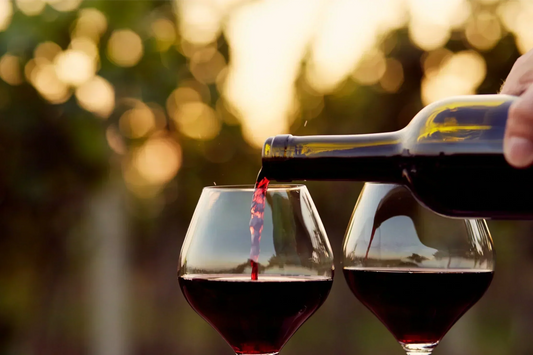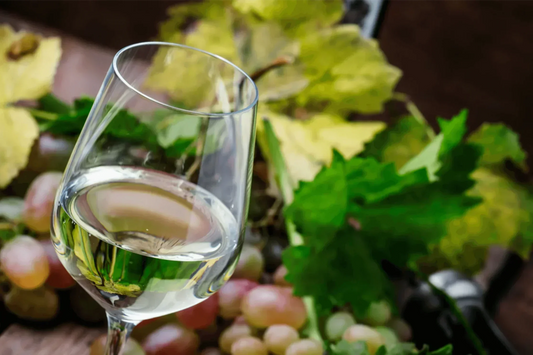
Canned Wine vs. Bottle Wine: Why More People Are Making the Switch
Ever wondered what all the fuss is about with canned wine? As more wine enthusiasts start noticing cans alongside bottles on the shelves, it’s only natural to ask: is canned wine as good as bottled, or is it just a passing trend? In this article, we’ll explore the key differences, bust a few myths, and help you figure out which option might be best for your taste and lifestyle.
Canned Wine vs. Bottle Wine: What’s the Real Difference?
Have you ever wondered whether wine tastes, smells, or even feels different when it’s in a can compared to a bottle? As the wine market continues to develop, there are quite a few differences between the two beyond just the packaging. For wine enthusiasts, canned wine might even be a better option! Here’s a handy side-by-side comparison to help you see the main differences at a glance.
| Key Differences Between Canned Wine and Bottled Wine | ||
|---|---|---|
| Feature | Canned Wine | Bottled Wine |
| Packaging | Lightweight aluminium can | Glass bottle with cork or screwcap |
| Portion Size | Usually single-serve (187–250 ml) | Standard (750 ml) or larger |
| Freshness | Airtight, blocks light and oxygen | Susceptible to cork taint, light, and air |
| Convenience | Easy to chill, portable, no corkscrew | Requires glassware, corkscrew, and heavier handling |
| Sustainability | Highly recyclable, lower carbon footprint | Recyclable but heavier to transport |
| Ageing Potential | Best consumed fresh | Can be aged (for certain styles) |
| Taste Concerns | No metallic taste (thanks to can lining) | Traditional expectations around bottle ageing |
Now that we've looked at the main differences side by side, let’s explore each factor a bit more to see how canned wine stacks up against bottled wine in everyday life.
How Is Wine in a Can Different from Bottled Wine?
At first glance, the only difference between canned and bottled wine is the packaging. Canned wine is stored in lightweight aluminium cans that are lined with a food-safe barrier, so the wine never touches the metal, meaning you don’t have to worry about any unwanted flavours. This airtight seal protects the wine from light and oxygen, which are two main factors that can cause wine to spoil over time. On the other hand, bottled wine is usually sealed with a cork or screwcap and kept in glass bottles. While glass is a classic choice, bottles can sometimes let in small amounts of air, especially with natural corks, and unless the glass is tinted, it offers little to block out light.
In summary:
- Canned wine uses a lined aluminium can for maximum freshness and portability.
- Bottled wine relies on glass and cork or screwcap, which offer their classic benefits but aren’t always as protective.
Quality Matters: Does Canned Wine Compromise on Taste?
It’s understandable to wonder whether canned wine can compare to bottled wine in taste and quality. Luckily, with advances in winemaking and packaging, most canned wines today are made from the same grapes and techniques as their bottled counterparts. Each can is carefully lined with a food-safe barrier, ensuring the wine never comes into contact with metal. So there's no worry about any metallic taste! In blind tastings, many people often can’t tell the difference, especially with white, rosé, and lighter reds, making canned wines a tasty and convenient choice.
In summary:
- Canned wine uses quality grapes and winemaking, just like bottled wine.
- Special lining prevents any metallic taste.
- Blind tastings show canned wine stands up to bottled wine for freshness and flavour.
Prefer reds? Don’t miss our 8 Best Canned Red Wines to Try (2025 Edition) and find the perfect can for your next gathering.
Convenience & Portability: Why More People Are Choosing Canned Wine
When it comes to convenience, canned wine stands out compared to bottles. Unlike traditional bottles, which can be heavy, fragile, and often need a corkscrew and glasses, cans are lightweight, durable, and ready to enjoy wherever you happen to be. Whether you're at outdoor gatherings, picnics, or festivals, cans easily fit into bags or coolers and chill more quickly than bottles. Plus, single-serve cans make it so simple to savour just the right amount of wine, no worries about wasting leftover wine or having to reseal an unfinished bottle.
In summary:
- Cans are lighter and easier to carry than glass bottles.
- No extra tools or glassware needed; just open and sip.
- Single-serve size reduces waste and makes portion control effortless.
- Canned wine is perfect for outdoor activities and chilling on the go.
Not sure which canned wine suits your taste?
Our canned wine subscription makes it easy! Let us curate the best cans for you to enjoy everywhere, delivered straight to your door.
Discover Your Canned Wine SubscriptionSustainability Showdown: Which Is Better for the Environment?
Sustainability is increasingly important to many wine enthusiasts, and how wine is packaged plays a big role. Canned wine tends to have a smaller carbon footprint compared to bottled wine because aluminium cans are lighter to transport, which helps cut down emissions. Plus, aluminium is very recyclable. Most cans in the UK are made with recycled materials and can be recycled repeatedly with minimal energy loss. On the other hand, glass bottles are heavier and require more energy to produce and ship. Although glass is recyclable, the process can be less efficient, and unfortunately, not all bottles are recycled due to contamination or local regulations.
In summary:
- Aluminium cans are lighter and more energy-efficient to transport than glass bottles.
- Cans are widely and easily recycled in the UK, often made from recycled material.
- Glass bottles are heavier, require more energy for production and shipping, and are not always recycled.
- Overall, canned wine is usually the more eco-friendly choice.
Shelf Life & Freshness: Will My Wine Go Off in a Can?
Many people wonder if wine remains just as fresh in a can as it does in a bottle. The good news is that canned wine is carefully sealed in an airtight, light-proof container, protecting it from two of wine’s biggest enemies: oxygen and sunlight. This means canned wine often stays wonderfully fresh, sometimes even more so, than bottled wine over the same period. Bottled wine, especially with a cork, can slowly allow in small amounts of air and be exposed to light if not stored properly, which can impact its taste over time. Both options are best enjoyed within a year or two of purchase, but canned wine is a great choice for keeping those bright, lively flavours intact without the worry of spoilage.
In summary:
- Canned wine is sealed airtight and blocks light, keeping wine fresher for longer.
- Bottled wine can be affected by air or light exposure if not stored correctly.
- Both are best enjoyed young, but cans offer excellent protection against spoilage.
- Canned wine is a reliable choice for freshness from the first sip to the last.
Conclusion
Choosing between canned and bottled wine depends on what matters most to you. Canned wine offers convenience, quality, and sustainability, making it an appealing choice for modern wine enthusiasts who want good taste without the hassle. If you’re looking to enjoy a glass anywhere, anytime, without sacrificing freshness or flavour, giving canned wine a go could be a smart move.
FAQ
1. Is canned wine lower quality than bottled wine?
No! Most canned wines use the same grapes and winemaking techniques as bottled wines. Modern canning keeps the wine fresh and flavourful, often matching bottled wine in blind tastings.
2. Does canned wine taste metallic?
Not at all. Each can is lined with a food-safe barrier, so the wine never contacts the metal, completely preventing any metallic taste.
3. How long does canned wine last?
Unopened canned wine usually lasts as long as most bottled wines, typically 12 to 18 months. Both are at their best when enjoyed young and fresh.
4. Can canned wine be aged like bottled wine?
Canned wine is meant to be enjoyed fresh and is not suitable for long-term ageing. Bottled formats are better for wines intended for ageing.
5. Is canned wine better for the environment?
Generally, yes. Aluminium cans are lightweight, require less energy for transportation, and are easily and widely recycled in the UK, leading to a smaller carbon footprint compared to glass bottles.



